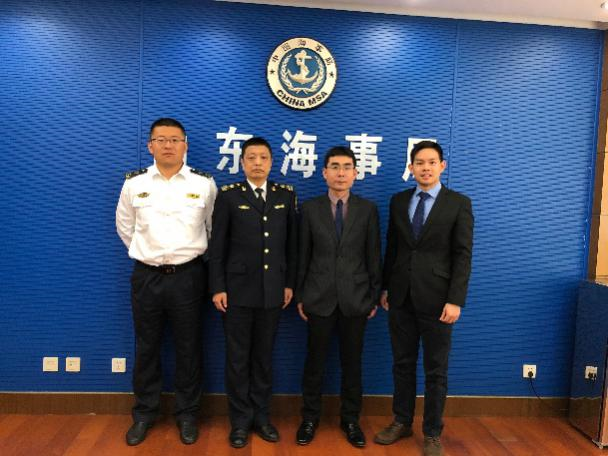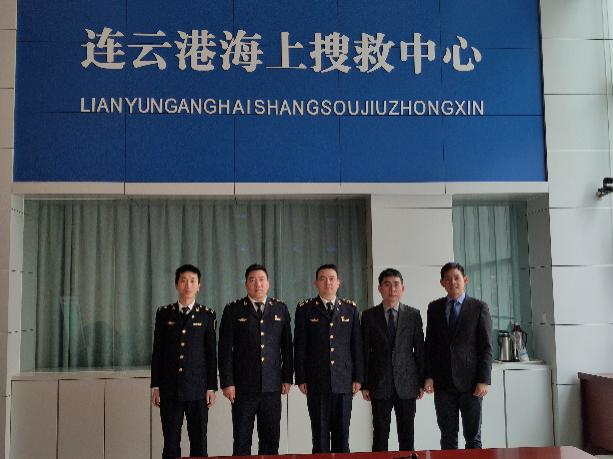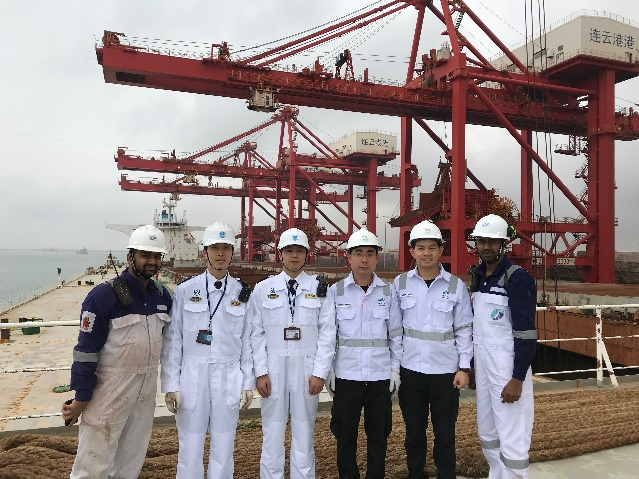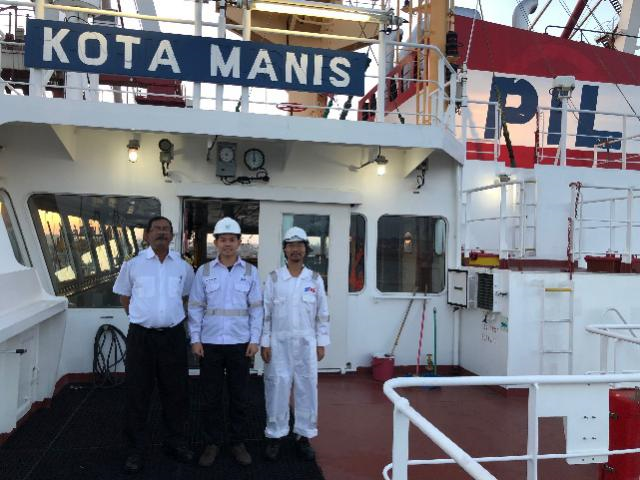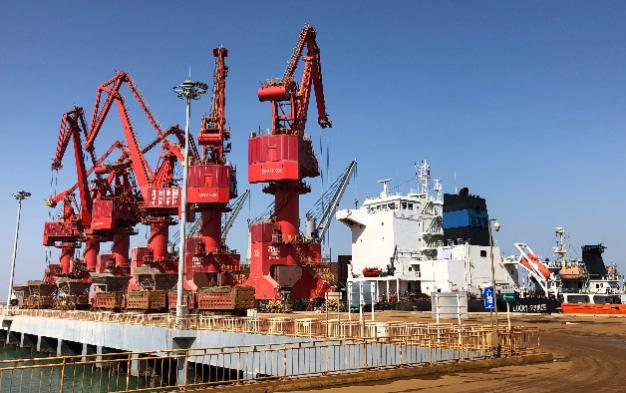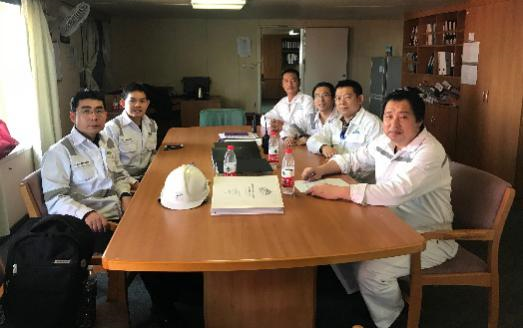From 22 to 26 April 2016, Flag State Control (FSC) department conducted overseas inspections of three Singapore ships - 2 bulk carriers in Lianyungang port, and 1 container ship in Qingdao port.
MPA officers also took the opportunity to call on our local counterparts at their two offices - Shandong MSA in Qingdao and Lianyungang MSA, with the aim to build up cooperation, good understanding and communication between the two flag Administrations. We are grateful for their warm hospitality.
Our exchanges focussed on PSC matters, and the approach that officers would take towards certain deficiencies. A more informed understanding of how MSA officers conduct their inspections would better equip MPA officers in providing assistance to shipping companies operating Singapore ships calling at Chinese ports. Other topics that were discussed included Beijing's decision on Domestic Emission Control Areas in their rivers and ports, latest developments such as promoting LNG bunkering / shore-power connections to reduce ship emissions in the local waters, and the prevention of wash water discharge from open-loop scrubbers in ports.
On MSA's request, MPA and China MSA also carried out a joint inspection on a Singapore bulk carrier at Lianyungang port, following which a Port State Control (PSC) inspection report was issued by China MSA, and a FSC inspection report was issued by MPA. This was considered a milestone activity, considering there has not been any precedent joint inspections by MPA and MSA.
The overseas inspections are part of our SRS Quality Flag Assessment 5-Year Programme (SRS QP5), where FSC officers would assess all Singapore ships above 500 GT over a 5-year period. Overseas inspections are mainly targeted towards under-performing Singapore ships that do not call at Singapore, or Singapore ships that have not been inspected by FSC in the past 5 years.
Under the IMO Instruments Implementation Code (III Code), Flag Administrations are required to establish an inspection programme to ensure their ships comply with the requirements of the applicable IMO instruments. The implementation of SRS QP5 serves to fulfil MPA's obligations under the III Code as a responsible Maritime Administration.
